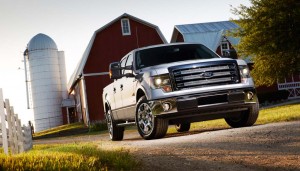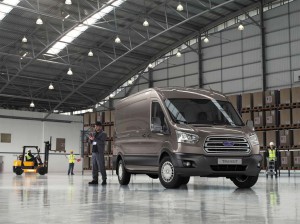Ford Motor Co. is investing $1.1 billion and adding more than 2,000 jobs at its Kansas City Assembly Plant to meet rising demand for the Ford F-150 and planned production of the all-new Ford Transit.
“Customer demand for today’s F-150 is strong and continues growing, the truck segment is growing three times faster than the overall industry, the housing market is strengthening, and we are seeing growth in the U.S. economy,” said Joe Hinrichs, Ford’s president of The Americas. “Our ‘Built Ford Tough’ F-150 is America’s favorite pickup, and we are going to expand operations in Kansas City to ensure we have enough trucks to meet customer demand.”
Ford is adding 900 jobs and a third crew in the third quarter of 2013 to build F-150. U.S. sales of Ford’s F-Series trucks increased 24% in April and is up 19% year to date. Ford also is adding another 1,100 jobs starting in the fourth quarter to prepare for the introduction of the all-new Ford Transit full-size van in 2014.
“For customers who want a modern van that is as tough and smart as the F-Series, the all-new Ford Transit van delivers, with better fuel economy, more capability and the greatest number of technology choices and innovative configurations full-size van buyers have ever seen,” Hinrichs said.
Ford is investing $1.1 billion to retool and expand Kansas City plant for production of both the F-150 and Transit. The renovation includes the construction 437,000 square-foot stamping facility and a 78,000 square-foot paint shop.
The new stamping facility was completed last year. The paint shop expansion will include installation of the three-wet paint process, which is more environmentally friendly and requires less time than conventional paint processes – without compromising Ford’s paint quality or durability.
Jimmy Settles, UAW vice president and director of the National Ford Department, said, “These additional jobs are the direct result of the dedicated effort our UAW members display every day at facilities all across the country and serve as another reminder of the resilience of American workers and our nation’s manufacturing sector.”
(Ford reported Q1 earnings of $1.6 billion. To read more, Click Here.)
With the investment and new jobs in Kansas City, Ford is three-quarters of the way to its plan to create 12,000 hourly jobs in the U.S. by 2015. The company also is investing $16 billion in its U.S. product development and manufacturing operations – including $6.2 billion in plant-specific investments. These actions, including today’s announcements, are consistent with Ford’s previous 2013 financial guidance for the Total Company and North America.
Workers at the Kansas City plant build the Ford F-150 Regular, Super and Crew Cab and will produce the Ford Transit. The plant currently has 2,450 hourly workers working on two shifts.
The plant expansion will have a major economic impact nationally.
(Click Here to read about Ford’s F-Series propane conversion option.)
Kansas City Assembly has more than 250 suppliers nationally and more than 10 suppliers locally who will positively benefit from the addition of a third crew.
Additionally, when Transit production starts next year, close to 275 suppliers nationally and six suppliers locally will grow their business. According to the job multiplier effect of nine jobs to every one – more than 18,000 jobs will be created to support the plant.
“Today’s announcement is yet another testament to our successful efforts to revitalize Missouri’s automotive manufacturing industry, which continues to gain steam,” Missouri Gov. Jay Nixon said. “This third crew for production of the F-150 will create hundreds of additional manufacturing jobs for workers in this region and ensure Missouri continues to lead the rebirth of the American auto industry for years to come.”
The F-Series has been the best-selling truck in America for 36 consecutive years, the best-selling vehicle in America for 31 consecutive years and the brand with the most trucks on the road with more than 250,000 miles, as certified by Polk. It has 62% market share in road and highway maintenance; 68% share in hazardous materials work and 67% share in the oil pipeline industry.


